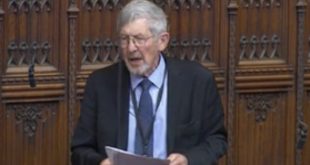Conservative MP Laurence Robertson has expressed concern to the UK Gambling Commission (UKGC) about the potential ‘devastating impact’ of enhanced affordability checks on UK racing.
The new affordability checks are currently being discussed in a consultation which will close tonight [9 February]. If introduced, the new regulations could enforce affordability checks once a customer has experienced a net monthly loss of £100.
Robertson, a parliamentary adviser to the Betting and Gaming Council (BGC), has said British racing would not survive if the financial input it receives from the betting industry were to be lost, as reported in the Racing Post.
The MP for Tewkesbury – where Cheltenham Racecourse is located – has argued that the UK horse racing industry receives £350 million a year from the betting industry. He also discussed the wider impact on sports outside of racing, the process of providing proof of income and the threat of the black market.
In his statement, the MP said: “Any reduction in this income as a result of people being diverted to the black market, or being put off betting altogether, as a result of over-stringent measures being taken would be disastrous for the sport.”
“Any steps must also avoid unintended consequences should customers refuse – quite reasonably – to provide their private financial data to operators. While the unintended consequences may manifest in the form of a devastating impact on sport, such as racing, another is generating consumer harm through driving customers to sites which will not make these onerous requests upon them.”
With regards to the black market, Robertson expressed concerns that increased regulation could drive British bettors towards black market operators, which employ little to no safety checks.
He continued: “Once those customers leave the regulated market, both the regulated industry and the commission lose the opportunity to protect those customers. The risk posed by this should not be understated.
“Therefore, I ask that the commission works with the industry to establish a risk-based approach which protects customers and avoids arbitrary limits which may drive a range of unintended consequences that could ultimately increase problem gambling.”
British horse racing leaders have also protested the proposed regulations, claiming the sport could lose up to £60 million in media rights and a reduced levy if bettors are deterred due to increased red tape.
The British Horseracing Authority (BHA) has stated: “In our submission, we outline that we are supportive of gambling regulation which is fit for the modern digital age and which helps reduce gambling-related harm, but emphasise that any changes must be evidence-based, scrutinised for their socio-economic impact and fully account for any potential unintended consequences for industries such as British racing.
“We understand this is also clearly an issue which has caused concern to the many customers of the sport who enjoy betting safely and responsibly, and have looked to reflect customers’ concerns as part of our submission.
“We have simultaneously been highlighting to parliamentarians our significant concerns regarding the impacts of these proposals for our industry’s finances, particularly after the Covid-19 pandemic.”
Meanwhile The Jockey Club Chief Executive Nevin Truesdale and Arena Racing Company (ARC) Chief Executive Martin Cruddace have released a worst case estimate of £100 million in losses.
Robertson is not the only MP to have voiced concerns about the potential outcomes of the ongoing review into the 2005 Gambling Act, as both Chancellor of the Exchequer Rishi Sunak and Foreign Secretary Dominic Raab have also discussed the issue.









